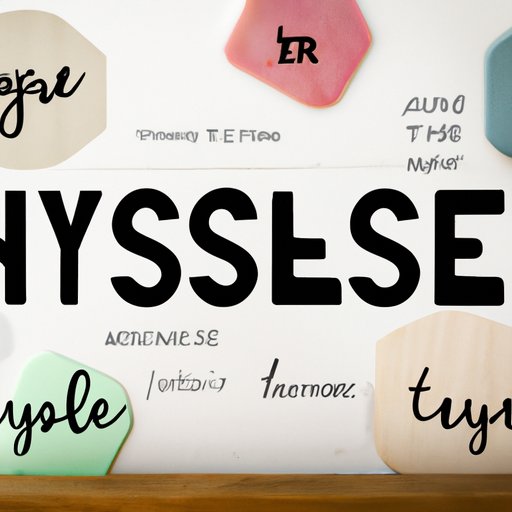Introduction
Mental health is essential for every individual to lead a happy and fulfilling life. Poor mental health can cause various issues such as anxiety, depression, and burnout. However, in today’s fast-paced world, it is challenging to maintain good mental health. It is essential to prioritize mental health and take care of it like physical health. In this article, we will explore various techniques that can help improve mental health.
5 Simple Techniques to Improve Your Mental Health
Meditation, mindfulness, breathing exercises, and visualization techniques are simple methods that can help improve mental health. These techniques help reduce stress and anxiety, improve focus, and increase feelings of well-being. Meditation involves sitting in a quiet place and focusing on your breath. Mindfulness involves being aware of your thoughts, feelings, and surroundings. Breathing exercises involve various breathing techniques that can help reduce stress and calm the mind. Visualization techniques involve visualizing positive outcomes and situations. To incorporate these techniques into your daily routine, set aside some time, and practice regularly. Start with small intervals and gradually increase the duration.
How Exercise Can Benefit Your Mental Health
Physical exercise can significantly benefit mental health. Exercise releases dopamine and endorphins, which are natural mood enhancers. It also reduces anxiety and depression symptoms. There are several ways to incorporate exercise into your daily routine, such as going for a walk, jogging, cycling, or joining a gym. It is crucial to find an activity that suits your lifestyle and interests. Set achievable goals and track progress to stay motivated.
The Importance of Setting Boundaries for Your Mental Health
Setting boundaries is essential for maintaining good mental health. Boundaries are guidelines that define your limits, needs, and expectations with other people. Setting healthy boundaries can help reduce stress, anxiety, and burnout. Recognizing and communicating boundaries is crucial in personal and professional relationships. Examples of healthy boundaries are saying no without feeling guilty, expressing your feelings without fear of judgment, and allowing yourself time for self-care.
The Power of Gratitude: How to Cultivate a Positive Mindset
Practicing gratitude is a powerful method for improving mental health. It involves focusing on the positive aspects of life and acknowledging the things we are grateful for. Cultivating a gratitude practice can help reduce stress, increase positivity, and improve relationships. Some ways to practice gratitude include writing a gratitude journal, creating a gratitude jar, or making a daily gratitude list.
Strategies for Coping with Stress and Anxiety
Stress and anxiety are prevalent mental health issues. Several coping strategies can help manage stress and anxiety levels. Self-care is essential for reducing stress and includes activities such as taking a bubble bath, reading a book, or listening to music. Seeking support from loved ones or professionals can also help manage stress and anxiety levels. Other strategies for managing stress include time management, positive self-talk, and mind-body techniques such as yoga and tai chi.
Conclusion
In conclusion, mental health is crucial for overall well-being. It is essential to prioritize mental health and take steps to maintain it. The techniques discussed above, such as meditation, exercise, setting boundaries, gratitude, and coping strategies, can help improve mental health. Incorporate these techniques into your daily routine and pay attention to how they make you feel. Remember to seek professional help if you have ongoing mental health issues. Prioritizing mental health can help lead a happier and more fulfilling life.
